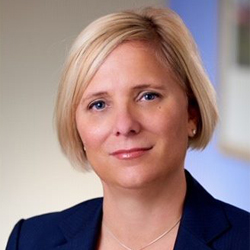Some women working to attain promotion in the office are at a relative disadvantage when it comes to networking tendencies, says Jeanne Hecht, MBA, PMP, CEO of Ora Inc. Very generally speaking, “women tend to focus on their nuclear network in the office, but don’t do as much to develop relationships with people outside their department,” she notes.
Further, women don’t tend to engage in after-work networking activities such as golf outings or cocktails at a cigar bar, Hecht says. “Women [often] aren’t as good at building networks outside their” immediate circle of colleagues, she adds. She will be part of a panel session on “Women in Leadership: Chutes, Ladders, and Unexpected Journeys” as Part II of the Virtual ACRP 2020 Program starts next week.
It’s critical for women to bolster their networks, Hecht says, because “women don’t get approached as often about advancement opportunities” via regular office channels. She learned early in her career to counter those ineffective networking inclinations when a male executive coach clued her in to what she was potentially missing by not branching out her network.
“I received great advice to reach out to colleagues at events, visit booths on tradeshow floors that were doing things outside my realm, and make a greater effort to understand my company’s entire operation,” Hecht recalls. You can take a “call from the salesperson even if you don’t intend to buy anything, because you might learn something valuable” about operations outside your own narrow confines, she advises.
Hecht also has advice for up-and-coming female executives about participating in company meetings. “A mentor told me years ago that I was invited to a meeting for a reason, and I should speak up with a few ideas or questions” to demonstrate why she belonged in the meeting, Hecht says. It requires preparing for the meeting adequately, of course. And asking questions can actually be more effective in some cases than making an observation, she notes.
“Think about how you can contribute before you go into the meeting,” Hecht says.
However, don’t harp on your previous experiences at another company. It gets old pretty fast for your colleagues to hear “at my company we did it this way,” Hecht says. Obviously, there are times to share valuable best practices garnered in previous work situations, but you don’t want to become someone who sounds stuck with past ways of doing things just because you are familiar with them, she notes.
Author: Michael Causey



